
Cat dander can be frustrating to deal with, especially when you’re dealing with or know someone who is dealing with feline allergies. It can make it hard for friends and family to visit you if your house is full of cat dander.
Dander clings to everything that your cat touches and is also airborne! So, it can seem like an impossible task to get your cat’s space (and your space) free of dander. But the good news is that you can temporarily reduce the amount of dander your cat produces and spreads with the right shampoo.
Here are the best cat shampoos for dander to help your feline stop spreading this unwanted “glitter” all over your house.

A Look at Our Favorites in 2024
| Image | Product | Details | ||
|---|---|---|---|---|
| Best Overall |
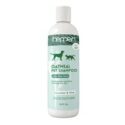
|
Hepper Colloidal Oatmeal Pet Shampoo |
|
CHECK PRICE |
| Budget Buy |
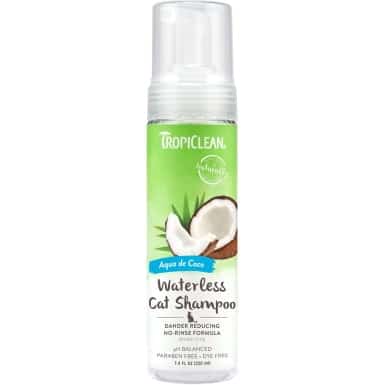
|
TropiClean Waterless Dander Reducing |
|
CHECK PRICE |
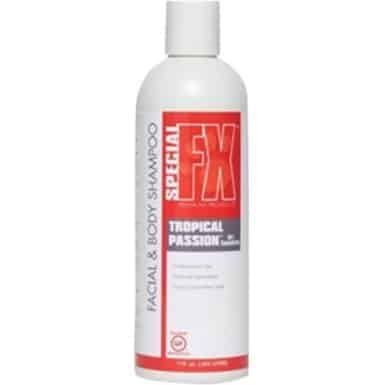
|
Special FX Facial & Body Shampoo |
|
CHECK PRICE | |
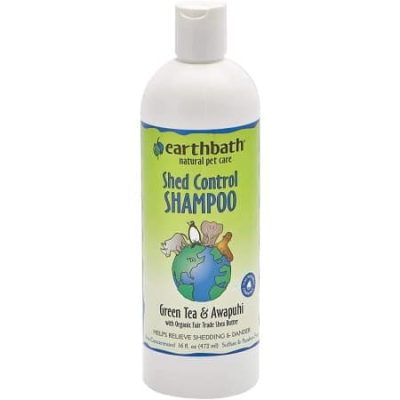
|
Earthbath Shed Control Shampoo |
|
CHECK PRICE | |
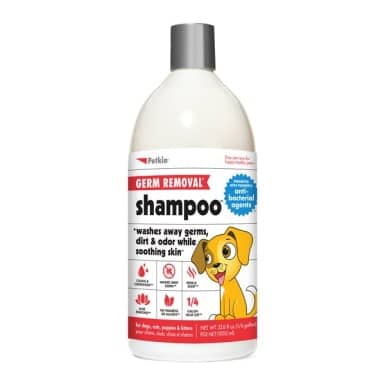
|
Petkin Germ Removal Dog & Cat Shampoo |
|
CHECK PRICE |
The 8 Best Cat Shampoos for Dander
1. Hepper Colloidal Oatmeal Pet Shampoo — Best Overall
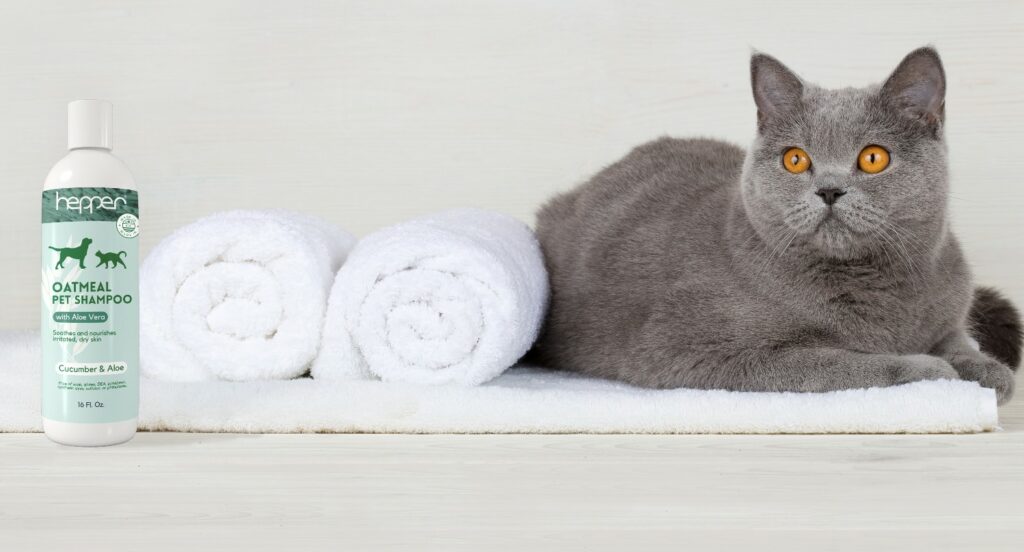
| Bottle Size: | 16 oz. |
| Natural?: | Yes |
| Contains Fragrances?: | Yes |
Hepper’s Colloidal Oatmeal Pet Shampoo is our choice for the best cat shampoo for dander. This shampoo’s all-natural, pet-safe formula is pH balanced for your cat’s skin and free of irritants like dyes, soaps, sulfates, and phthalates. With soothing ingredients like aloe vera and oatmeal, it can help tame your cat’s dander and reduce overall irritation. Say goodbye to your cat’s smells and itchy skin! Plus, this shampoo is made in the U.S.A. and is quite affordable.
We love this shampoo’s gentle, moisturizing formula and fresh, clean scent. However, some cats may prefer unscented shampoo. Overall, we think this is the best overall cat shampoo for dander that you can buy.
At Catster, we’ve admired Hepper for many years and decided to take a controlling ownership interest, so that we could benefit from the outstanding designs of this cool cat company!
- Moisturizing formula helps control dander
- Natural, pet-safe ingredients
- pH balanced to avoid irritating your cat’s skin
- Made in the U.S.A.
- Fresh, clean scent
- Affordable
- Some cats may prefer unscented shampoo
2. TropiClean Waterless Cat Shampoo — Budget Buy

| Bottle Size: | 7.4 oz. |
| Natural?: | No |
| Contains Fragrances?: | Yes |
TropiClean Waterless Cat Shampoo is the best cat shampoo for the money. It’s an affordable introduction to waterless shampoos that can help reduce your cat’s dander output while keeping your cat comfortably away from the bathtub at all costs.
The shampoo is made with a mild and gentle coconut cleanser that helps your cat smell tropical fresh without the need for a rinse down afterward. In addition, this shampoo is shown to reduce dander not just after being used but for some time in between baths. So, it’s an excellent value for pet parents looking to cut down on the dander in their homes!
Unfortunately, this shampoo isn’t all-natural. So, any pet parents looking for a natural solution to their cat’s dander problem will have to look elsewhere. Still, it’s hard to turn down a deal like this one.
- Reduces dander that creates allergens
- No water or rinsing required
- Made with a mild coconut cleanser
- Not all natural
3. Special FX Tropical Passion Cat Shampoo

| Bottle Size: | 17 oz. |
| Natural?: | No |
| Contains Fragrances?: | Yes |
Special FX Tropical Passion Cat Shampoo is hypoallergenic, pH balanced, and biodegradable, and that’s why it’s among our top choices for the best cat shampoo for dander. It’s also wheat and gluten free, made in the U.S.A., and safe for dogs, cats, and horses!
This is an effective dander-controlling shampoo, so any pet parents who can splurge on it will find themselves impressed! However, not all cat owners can afford this shampoo, as it comes with a premium price.
- Made in the U.S.A.
- Wheat and gluten free
- Biodegradable
- Not compatible with all topical flea-and-tick treatments
4. Earthbath Shed Control Cat Shampoo

| Bottle Size: | 16 oz. |
| Natural?: | Yes |
| Contains Fragrances?: | Yes |
Earthbath Shed Control Cat Shampoo is a pH-balanced soap-free shampoo that contains aloe vera, shea butter, and green tea extract to nourish your cat’s skin.
The formula helps control the production of allergens like dander and helps prevent the cat’s shedding, meaning less cleaning up for you! The shampoo also helps rejuvenate the cat’s coat and makes it soft and silky to the touch. It’s an absolute powerhouse in the cleaning sector!
Finally, this formula is 100% biodegradable. So, any eco-conscious pet parents who want to make sure the shampoo is healthy for the planet need not worry; this shampoo will break down just fine when it’s done with your cat.
- 100% biodegradable
- Helps excessive control shedding, dander, and dry, flaky skin
- pH balanced, soap free
- Not safe for cats under 6 weeks of age
5. Petkin Germ Removal Cat Shampoo

| Bottle Size: | 33.8 oz. |
| Natural?: | No |
| Contains Fragrances?: | Yes |
Petkin Germ Removal Cat Shampoo is a great option for pet parents who want to reduce dander in their homes. This is an antibacterial shampoo that is primarily focused on cleaning your cat’s fur, but in doing so, it also helps reduce dander and shedding.
If you’re looking to have your home free of dander and loose fur, this is the shampoo for you! Not only that, but your cat will also smell like fresh vanilla when you’re done with them!
This shampoo brings it home by being fortified with vitamin E and aloe to soothe the skin and make the coat silky and soft to the touch. It does all this while remaining free of sulfates and parabens—a true powerhouse!
- No sulfates or parabens
- Vanilla scented
- Contains vitamin E and aloe
- Not all-natural
6. Special FX Platinum Plum Cat Shampoo
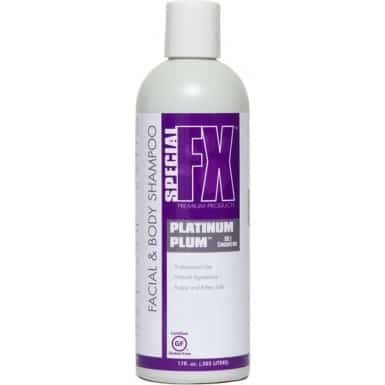
| Bottle Size: | 17 oz. |
| Natural?: | No |
| Contains Fragrances?: | Yes |
This Special FX Platinum Plum Cat Shampoo is an option for pet parents who want to get the tropical Special FX cat shampoo but don’t like tropical smells. This has a light fruity aroma that you and your cat will love!
This also has all the features of Special FX’s Tropical Shampoo; it’s biodegradable, wheat and gluten free, pH balanced, and made in the U.S.A. and contains vitamin E to improve the quality of your cat’s coat.
This is a fantastic option for any cat parents who don’t like tropical smells or even those who want to shake up their home’s scent profile.
- Alternative to tropical scents
- Wheat and gluten free
- Biodegradable
- Not the preferred shampoo of pet parents everywhere
7. Special FX Simply Fresh Cat Shampoo
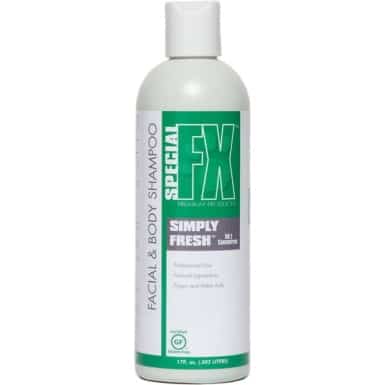
| Bottle Size: | 17 oz. |
| Natural?: | No |
| Contains Fragrances?: | Yes |
Special FX Simply Fresh Cat Shampoo is just like the other Special FX shampoos but with a fresh and clean smell. It also has the same features, like biodegradability and vitamin E for coat quality.
This one can be bought in sets of one or two bottles. So, any bulk-happy pet parents will be able to purchase extra bottles at the right price!
- Can buy in bulk
- Biodegradable
- Usable on dogs, cats, and horses
- Not all-natural
8. Purina Pro Plan LiveClear Cat Shampoo Spray
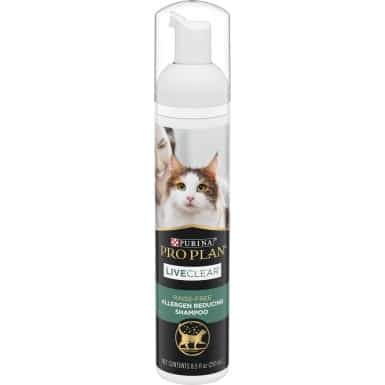
| Bottle Size: | 8.5 oz. |
| Natural?: | No |
| Contains Fragrances?: | Yes |
Any pet parents who like Purina products can try out its Purina Pro Plan LiveClear Cat Shampoo Spray. It’s an inexpensive option for pet parents looking for a waterless cat shampoo.
Purina Pro Plan also offers a LiveClear food line to go with the shampoo that “helps target allergens at the source.” It even has a bundle for any pet parents already sold on it!
- Hypoallergenic
- Rinse free
- Complete dander control plan requires purchasing complementing products
Buyer’s Guide — Find the Best Cat Shampoo for Dander
Understanding why and how we can reduce the amount of dander found in our homes starts with understanding what dander is. Dander is a collection of lightweight proteins found in cat fur and skin. When your cat or dog walks, shakes, or simply enters a space, they spread dander all over the environment. Dander is, in fact, microscopic and not something you can see. Dander also gets trapped in their fur and is distributed throughout your home as fur sheds.
What Is Dander?
Dander is the real culprit behind cat and dog allergies. There’s a common misconception that the allergen that people react to is cat or dog fur, but it’s not the fur itself—it’s what’s on the fur.
The proteins that makeup dander are so lightweight that they can stay aloft in the air for hours after a pet has been in a room. People who have cats can even carry dander with them on their clothes and skin, introducing dander to places where a cat has never set foot.

Signs of a Pet Allergy
Do you think you have an allergy to your pet? Take a look at the most common signs of a pet dander allergy, and see if you match up!
- Sneezing
- Runny or stuffy nose
- Facial pain (from nasal congestion)
- Coughing, wheezing, trouble breathing
- Watery, red, and/or itchy eyes
- Skin rash, hives
Pet dander allergy signs usually show up pretty soon after contact with the allergen. However, it’s very important to not diagnose yourself as someone who has an allergy to a specific allergen (in this case pets), as the signs of allergies aren’t unique to pet allergies. You could be allergic to something else (such as dust, dust mites, or pollen) as well. Therefore, if you suspect you have an allergy, it’s best to consult your medical doctor first.
How to Reduce Dander in Your Home
Reducing dander in your home is no small task. Cats produce dander naturally; it’s part of their biological makeup. Studies have shown that even those who don’t have any pets in their home may have dander in their home. It is, afterall, microscopic and remains airborne for prolonged periods.
However, even simply reducing the amount of dander in your home can bring relief to friends and family who visit. So, here are tips for reducing the dander present in your home.

Clean Your House Regularly
It may go without saying that the amount of dander in your home will reflect your cleaning habits. If your home is constantly dirty, it won’t just be your cat’s dander that’s everywhere. So, regularly clean to reduce the amount of dander your cat has left behind.
Get Rid of Clutter
Clutter traps everything from dirt and dust to dander. So, getting rid of clutter means there will be fewer places for dander to “hide” in your home.
This can be rolled into “cleaning regularly,” but some have relatively clean but very cluttered homes. This clutter can trap all sorts of allergens. So, getting rid of it is an excellent first step!
Bathe and Brush Your Pet Regularly
Bathing and brushing your pet helps remove the dander that’s trapped in their coat and prevents it from ending up on your furniture and in your air. In addition, brushing your cat can help reduce how much they shed, which indirectly reduces the amount of dander in your home by reducing how much dander is spread from shed fur.
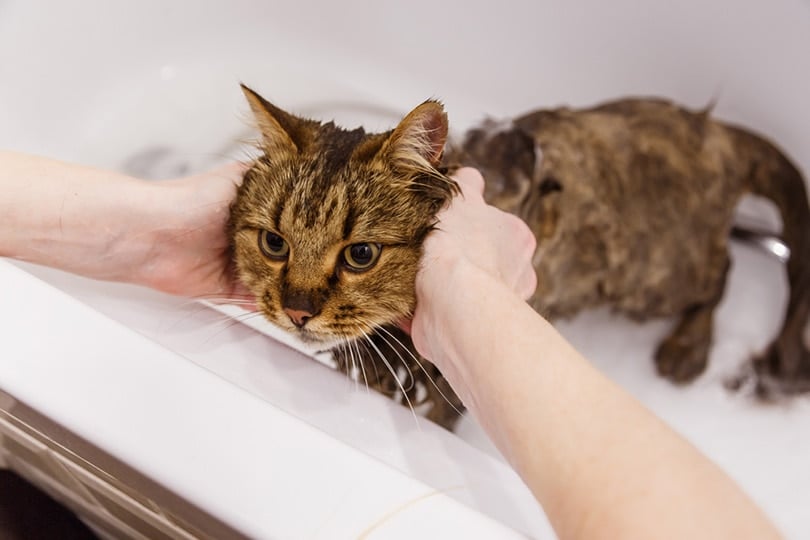
Use a HEPA Filter
HEPA filters are excellent for reducing the amount of dander in your home. These air filters remove allergens and other lung irritants from the air while they run. A HEPA filter won’t just reduce dander; it will reduce all allergens in your home!
Restrict Your Cat From Certain Areas
If you have guests visiting overnight, it might be best to remove your cat from certain areas of the home. Keeping your cat out of places where your guests will be sleeping can help reduce the presence of dander and make your guests more comfortable while they sleep.
Other Grooming Products to Consider
If you want to prolong that dreamy just just-washed scent and prevent pesky tangles or tame out-of-control static, these two products by Hepper are gamer changers. Incorporating them into your grooming routine will ensure your cat's coat will remain silky smooth, their skin moisturized, and of course, best of all, smelling light and fresh. Hepper's Pet Conditioner is a great way of rehydrating your cat's skin and coat before taking them out of the bath. It may also make the drying process a little quicker and painful tangles a thing of the past. The Hepper Pet Cologne is a pet-safe deodorizer that you can spritz on a brush or on their coat directly. Work the cologne through fur for a just left-the-kitty-salon scent and smooth, static-free finish.
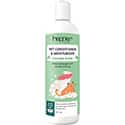
|
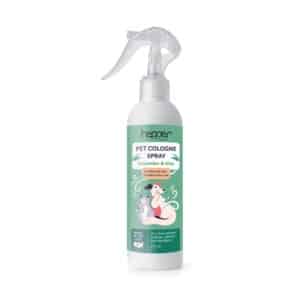
|
|
|---|---|---|
| Hepper Pet Conditioner | Hepper Pet Cologne | |
| Great for between washes |
Great for between washes :
|
Great for between washes :
|
| Reduces static |
Reduces static :
|
Reduces static :
|
| Long lasting scent |
Long lasting scent :
|
Long lasting scent :
|
| Smooths & prevents tangles |
Smooths & prevents tangles :
|
Smooths & prevents tangles :
|
| Does not require a rinse |
Does not require a rinse :
|
Does not require a rinse :
|
| Pet safe ingredients |
Pet safe ingredients :
|
Pet safe ingredients :
|
| Vet recommended |
Vet recommended :
|
Vet recommended :
|
| Hydrates coat & nourishes skin |
Hydrates coat & nourishes skin:
|
Hydrates coat & nourishes skin:
|
At Catster, we’ve admired Hepper for many years and decided to take a controlling ownership interest so that we could benefit from the outstanding designs of this cool cat company!
Final Thoughts
Dander can be a severe problem for pet parents to deal with. Fortunately, the pet industry has given us tools to help deal with it! Our choice for the best overall cat shampoo among these reviews is Hepper’s Colloidal Oatmeal Pet Shampoo, which gently moisturizes as it cleans. The best budget cat shampoo for dander is TropiClean’s Waterless Dander Reducing Cat Shampoo, and no water or rinsing is required! Lastly, Special FX’s Tropical Passion Facial & Body Dog & Cat Shampoo was our third choice for a biodegradable and reliable option.
- See also: Best Cat Shampoos for Odor Control
Featured Image Credit: KDdesignphoto, Pixabay
Contents
- A Look at Our Favorites in 2024
- The 8 Best Cat Shampoos for Dander
- 1. Hepper Colloidal Oatmeal Pet Shampoo — Best Overall
- 2. TropiClean Waterless Cat Shampoo — Budget Buy
- 3. Special FX Tropical Passion Cat Shampoo
- 4. Earthbath Shed Control Cat Shampoo
- 5. Petkin Germ Removal Cat Shampoo
- 6. Special FX Platinum Plum Cat Shampoo
- 7. Special FX Simply Fresh Cat Shampoo
- 8. Purina Pro Plan LiveClear Cat Shampoo Spray
- Buyer’s Guide — Find the Best Cat Shampoo for Dander
- Final Thoughts















